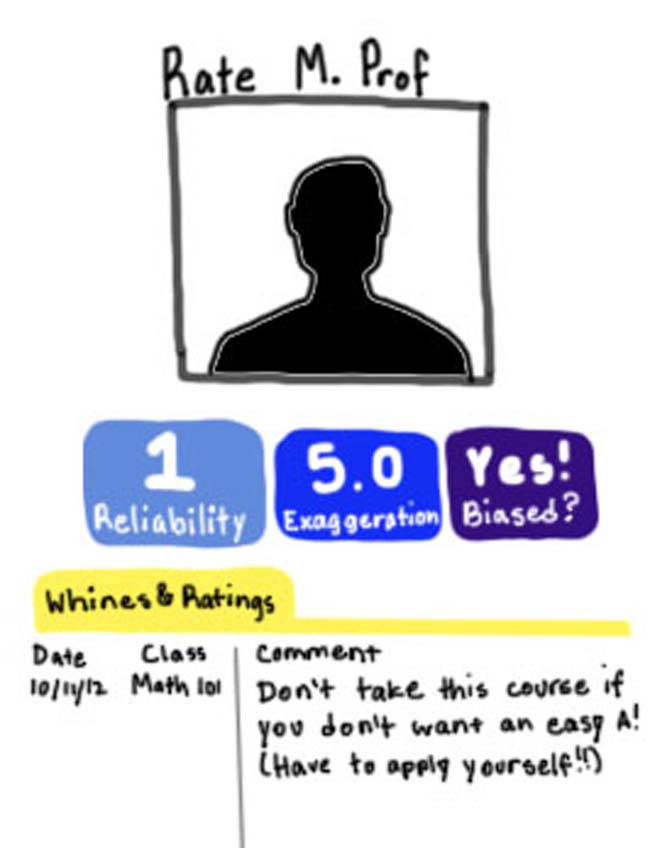There’s only one thing more stressful and painful for many of my freshman friends than registration: finding out the professors of their dream courses got negative reviews on www.ratemyprofessor.com.
The College of William and Mary doesn’t release its course evaluation results to students, but it needs to. Without official data regarding the quality of courses, students hoping to learn about potential professors must refer to other resources, among which are those famous mood spoilers: rating websites.
During the week of registration, I received several desperate phone calls from my friends. They had barely survived the registration for spring semester, when they immediately found out that one of their professors got a horribly low score online. “Oh, that’s the class I wanted most! But with that score and those reviews online … should I drop the class?” I couldn’t even come up with a comforting sentiment because this double-edged sword of a dilemma was going to cut them one way or another. They had to either drop that dream course or endure a professor who didn’t seem like a good deal.
But is that the only truth? What if the professors are actually much better than they seem online?
Personally I don’t believe in online professor ratings; in fact, I never use them as I make my course lists, which time and again is considered insane in the eyes of my friends. They always ask, “What if you run into a crazy critic who simply isn’t satisfied with anything you do?” Well, that argument seems a bit nonsensical to me. One of the biggest reasons I’m here is to study and have instructors enhance my abilities. What’s wrong with a professor with high expectations, as long as he or she gives you great instructions and knowledge? I’ll be more than glad to see my tuition fees go to the right place, to see that professors are paying attention to me and to my education, rather than carelessly to some empty chairs.
Apprehension about mediocre instructional quality, on the other hand, is the case worth discussing. Many people refer to online rating sites to learn the teaching quality of the professors because the college doesn’t release the results of course evaluations to students — or if the College does, students like me have no idea where the course evaluations from previous students are available. The National Survey of Student Engagement recently released a survey of students’ participation, stating, “Although about 9 in 10 students have completed an evaluation, only a third of freshmen and one-fifth of seniors said they use the forms when choosing courses.” Well, I don’t know the exact number of students who use the evaluation forms on our campus when choosing courses, but as far as I know, such forms are not open to students, which is really a pity because course evaluation forms have much more reliable results than www.ratemyprofessor.com. Because the entire student body, rather than a small number of students, completed the evaluations, the results are more reliable and valuable to those students who are eager to know whether or not certain professors teach good courses. Even if that does not completely relieve my friends’ painful burdens of finding out how good their professors are, it can at least give them some valid data.
So when the College urges students to complete the course evaluations and give feedback to professors, I sincerely hope the College will also remember that students need those previous course evaluations, too. With that information, students won’t need to go to rating websites and debate whether or not to trust those online reviews.
Email Wenqing Zhao at wzhao01@email.wm.edu.

